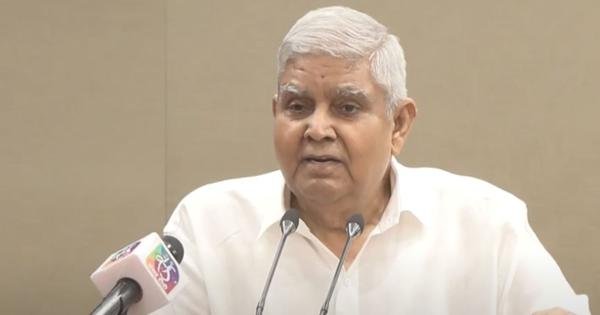Vice President Jagdeep Dhankhar Criticizes Supreme Court’s Directive to the President
Judiciary Overstepping Bounds
Vice President Jagdeep Dhankhar expressed concern on Thursday about the judiciary issuing directives to the president. He made these remarks in response to the Supreme Court’s April 8 ruling, which imposed a three-month deadline for the president to approve or reject bills referred by state governors.
Supreme Court’s April 8 Ruling
- The Supreme Court set a three-month limit for the president to decide on bills referred by governors.
- The ruling came after Tamil Nadu Governor RN Ravi withheld assent to 10 bills for over three years before rejecting them and sending some to the president.
- The court held that Ravi’s decision was “illegal and erroneous.”
- The court declared that the 10 bills would be deemed to have received the governor’s assent from the date they were passed a second time by the legislature.
- The court also imposed a three-month deadline on the president to approve or reject such bills.
Dhankhar, who served as the West Bengal governor from 2019 to 2022, criticized the judiciary for overstepping its bounds and questioned the lack of accountability.
Dhankhar’s Concerns
- Dhankhar expressed concern about the judiciary performing legislative and executive functions without accountability.
- He questioned the recent directive to the president by the Supreme Court, asking, “Where are we heading? What is happening in the country?”
- Dhankhar emphasized the president’s elevated position and the importance of preserving, protecting, and defending the Constitution.
- He criticized the use of Article 142 of the Constitution, claiming it has become a “nuclear missile against democratic forces.”
The vice president stressed the need for sensitivity and questioned the basis for directing the president of India.
Implications of the Supreme Court’s Ruling
- The ruling has ended the governor’s “pocket veto” power.
- The president is now required to decide on bills within a three-month timeframe.
- The ruling has sparked a debate about the balance of power between the judiciary, executive, and legislative branches.




